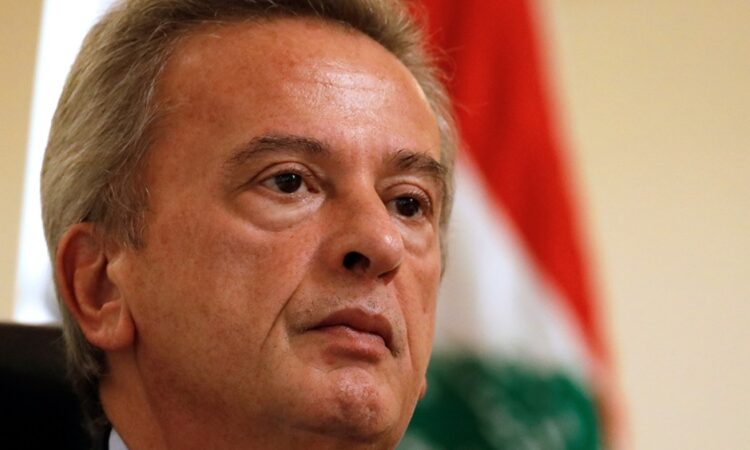US, UK and Canada sanction Lebanon’s former central bank governor | Business and Economy News

Internationally wanted Riad Salameh resigned from the post he held for 30 years after corruption charges were filed against him in the wake of Lebanon’s economic collapse.
The United States, United Kingdom and Canada have placed sanctions on the former longtime governor of Lebanon’s central bank, Riad Salameh, who has been charged with corruption.
The countries announced the sanctions on Thursday, accusing Salameh of contributing to the breakdown of the rule of law in Lebanon through corrupt actions that enriched himself and his associates.
“Salameh abused his position of power, likely in violation of Lebanese law, to enrich himself and his associates by funneling hundreds of millions of dollars through layered shell companies to invest in European real estate,” the US Department of the Treasury said in a statement.
The sanctions also apply to the ex-governor’s brother Raja Salameh and his former assistant Marianne Hoayek. Washington and London also sanctioned Anna Kosakova, who has a child with Riad Salameh, and the US additionally chose to sanction his son Nady Salameh.
The sanctions freeze the assets of Riad Salameh and his associates and prohibit transactions between them and US citizens or businesses.
Canadian Foreign Minister Melanie Joly said the sanctions send the message that the countries “will not tolerate the acts of significant corruption that have contributed to Lebanon’s economic collapse”.
Salameh has denied the corruption allegations and said he would challenge them, adding that some of his assets have already been frozen in previous investigations.
Tarnished legacy
The disgraced former governor of the central bank, known as Banque du Liban, left his post on July 31 after serving in the role since 1993. Once feted as a financial genius, Salameh now has a tarnished legacy due to the collapse of Lebanon’s banking sector and corruption charges at home and abroad.
In February, Lebanon charged him with embezzlement, money laundering and tax evasion.
In May, French and German authorities also issued warrants for his arrest, with Interpol red notices declaring him wanted by both countries on charges of money laundering.
In March of last year, France, Germany and Luxembourg seized assets worth 120 million euros ($135m) in an investigation into his wealth.
A European diplomatic source has said that Salameh will soon be tried in Paris.
Salameh has said he has been made a scapegoat for Lebanon’s crippling economic crisis.
Decades of corruption by state officials have led Lebanon’s currency to lose 98 percent of its value against the US dollar. Many people hold Salameh and his associates responsible, accusing them of mismanagement of the country’s economy.





